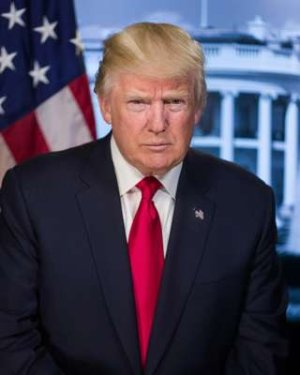Could this new executive order change how you vote? Here’s what nonprofits and lawmakers are doing to fight back
- Replies 1
Disclaimer: This is an ongoing story, and new developments may arise. The information provided is based on currently available sources. Readers are encouraged to stay informed through official statements.
A new executive order has sparked a high-stakes legal showdown, and it could affect the way Americans vote.
While some support the changes as a way to enhance election security, critics say they’re anything but harmless.
Now, several groups are stepping up to challenge what they call a dangerous threat to voting rights.
Nonprofit organizations and Democratic leaders have filed two lawsuits in federal court, calling President Donald Trump’s latest executive order unconstitutional.
The lawsuits were brought by the Campaign Legal Center, the State Democracy Defenders Fund, the Democratic National Committee, and top Democratic lawmakers.
Their goal? Block the order and prevent what they say could be sweeping changes to the country’s election system.

The order includes a new proof-of-citizenship requirement for voter registration.
It also directs agencies to make changes to ballot deadlines.
Critics argue these measures would disproportionately impact eligible voters who lack documentation and could lead to confusion or disenfranchisement.
Legal experts say the Constitution gives the power to regulate elections to states and Congress—not the president.
“The Constitution is clear,” said Danielle Lang of the Campaign Legal Center. “States set their own rules… and only Congress has the power to override these laws.”
Lang called the order “an unconstitutional executive overreach.”
The lawsuits argue the order could restrict access to the ballot for millions of Americans.
They cite voter advocacy groups like the League of United Latin American Citizens, the Secure Families Initiative, and the Arizona Students’ Association as organizations already harmed by the policy.
Another concern: data-sharing. One part of the order directs the Department of Government Efficiency to cross-check federal data with state voter rolls.
Opponents say that could violate privacy and open the door to harassment or wrongful voter purges.
Trump claims the changes will protect against illegal voting by noncitizens.
But multiple investigations have shown such cases are extremely rare.
In states where proof-of-citizenship rules were tried, most of those blocked from registering turned out to be eligible US citizens.
Some Republican election officials have praised the order, saying it gives them more tools to manage voter rolls.
But if the order is upheld in court, it could force states to buy new systems, update procedures, and educate voters about new requirements.
That means more complexity, more cost—and possibly, more confusion on election day.
Groups like the American Civil Liberties Union and several Democratic attorneys general are also reviewing the order.
Many expect further legal challenges in the coming weeks.
Changes like this could affect how and when you register to vote—or even whether you’re eligible at all.
That’s why advocacy groups are urging Americans to stay informed and involved as this case moves through the courts.
 Do you believe this executive order helps or harms our democracy? Have you faced challenges registering to vote or had concerns about election changes? Share your thoughts in the comments below.
Do you believe this executive order helps or harms our democracy? Have you faced challenges registering to vote or had concerns about election changes? Share your thoughts in the comments below.
Read more:
A new executive order has sparked a high-stakes legal showdown, and it could affect the way Americans vote.
While some support the changes as a way to enhance election security, critics say they’re anything but harmless.
Now, several groups are stepping up to challenge what they call a dangerous threat to voting rights.
Nonprofit organizations and Democratic leaders have filed two lawsuits in federal court, calling President Donald Trump’s latest executive order unconstitutional.
The lawsuits were brought by the Campaign Legal Center, the State Democracy Defenders Fund, the Democratic National Committee, and top Democratic lawmakers.
Their goal? Block the order and prevent what they say could be sweeping changes to the country’s election system.

The Democratic National Committee and nonprofit groups have filed lawsuits calling President Trump's executive order on elections unconstitutional. Image source: Library of Congress / Unsplash
The order includes a new proof-of-citizenship requirement for voter registration.
It also directs agencies to make changes to ballot deadlines.
Critics argue these measures would disproportionately impact eligible voters who lack documentation and could lead to confusion or disenfranchisement.
Legal experts say the Constitution gives the power to regulate elections to states and Congress—not the president.
“The Constitution is clear,” said Danielle Lang of the Campaign Legal Center. “States set their own rules… and only Congress has the power to override these laws.”
Lang called the order “an unconstitutional executive overreach.”
The lawsuits argue the order could restrict access to the ballot for millions of Americans.
They cite voter advocacy groups like the League of United Latin American Citizens, the Secure Families Initiative, and the Arizona Students’ Association as organizations already harmed by the policy.
Another concern: data-sharing. One part of the order directs the Department of Government Efficiency to cross-check federal data with state voter rolls.
Opponents say that could violate privacy and open the door to harassment or wrongful voter purges.
Trump claims the changes will protect against illegal voting by noncitizens.
But multiple investigations have shown such cases are extremely rare.
In states where proof-of-citizenship rules were tried, most of those blocked from registering turned out to be eligible US citizens.
Some Republican election officials have praised the order, saying it gives them more tools to manage voter rolls.
But if the order is upheld in court, it could force states to buy new systems, update procedures, and educate voters about new requirements.
That means more complexity, more cost—and possibly, more confusion on election day.
Groups like the American Civil Liberties Union and several Democratic attorneys general are also reviewing the order.
Many expect further legal challenges in the coming weeks.
Changes like this could affect how and when you register to vote—or even whether you’re eligible at all.
That’s why advocacy groups are urging Americans to stay informed and involved as this case moves through the courts.
Key Takeaways
- The Democratic National Committee and nonprofit groups have filed lawsuits calling President Trump's executive order on elections unconstitutional.
- The lawsuits, filed in the US District Court for the District of Columbia, seek to block the order and declare it illegal, citing it as an example of executive overreach.
- The executive order demands changes to voter registration and ballot deadline rules, which may violate the US Constitution’s Elections Clause that gives states the power to regulate elections.
- The legal challenges argue that the president’s order could disenfranchise voters and violate privacy rights by demanding sensitive personal information.
Read more:






